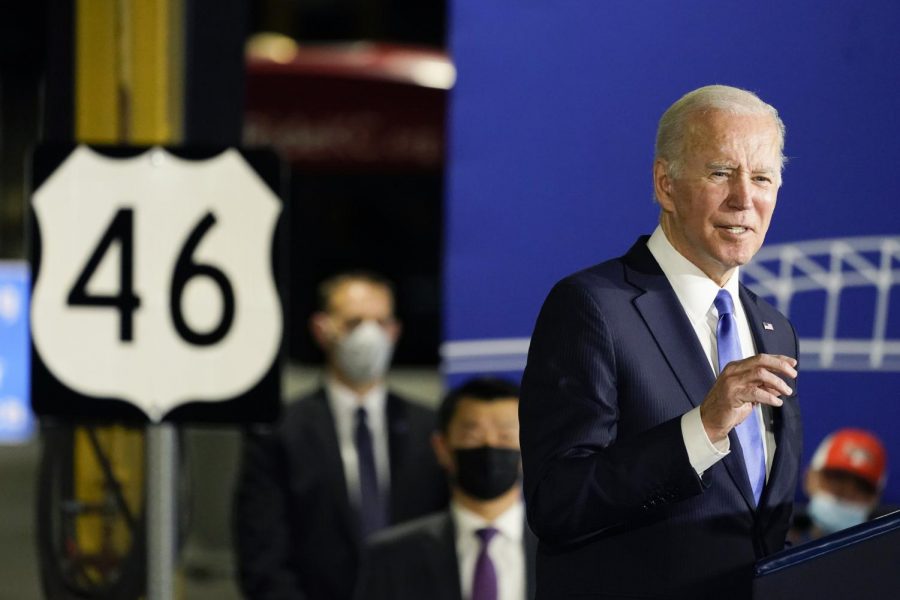Infrastructure Bill Signed into Action
AP Images/Alex Brandon
The trillion dollar infrastructure bill has been largely controversial ever since its inception just a few months ago.
December 16, 2021
Biden’s infrastructure bill was signed publicly signed into law on November 15th. The scale and price tag of Biden’s new infrastructure bill has had resistance among republicans and democrats of congress.
The bill will set aside nearly 1.2 trillion dollars (a sizable amount from unused covid-19 funds) to fund sweeping infrastructure projects. This will include 115 billion to repair roads and bridges, 100 billion to expand high speed broadband internet across the nation and provide a 30-dollar monthly subsidy to pay for internet, and 100 billion to pay for schools and school repairs.
When asked about his opinion on the new bill, Marc Perrone, president of the United Food and Commercial Workers Union, stated, “With this bipartisan infrastructure bill now signed into law, President Biden is delivering on his promise to hardworking families to help create good-paying union jobs and invest in the roads and bridges that are the backbone of our economy.”
The expansion of broadband internet is one of the more radical aspects of this new plan. It has two main parts. The first is the internet subsidy. This will be payments of 30 to 50 dollars a month in order to help lower income families afford high speed internet. This new plan is replacing the Emergency Broadband benefit: a covid 19 program that aided many families who had suffered economically.
One of the most important differences, however, is that the internet subsidy will be able to be applied to families with income as high as 44,000 dollars under certain conditions. This is a massive increase as the EBB was only given to those whose income did not exceed 29,646 dollars.
As always there were complaints from both sides of the aisle. Democratic members of congress felt that the bill was incomplete and that there was much wasted potential for Biden to fulfill many more presidential promises. Many republican congressmen and women balked at the price tag of the bill which represented one of the largest infrastructure expenditures in US history.
That being said, the plan was able to be passed as a “bipartisan” bill because many congressmen saw the advantage of a project that would almost certainly benefit their constituents.




















